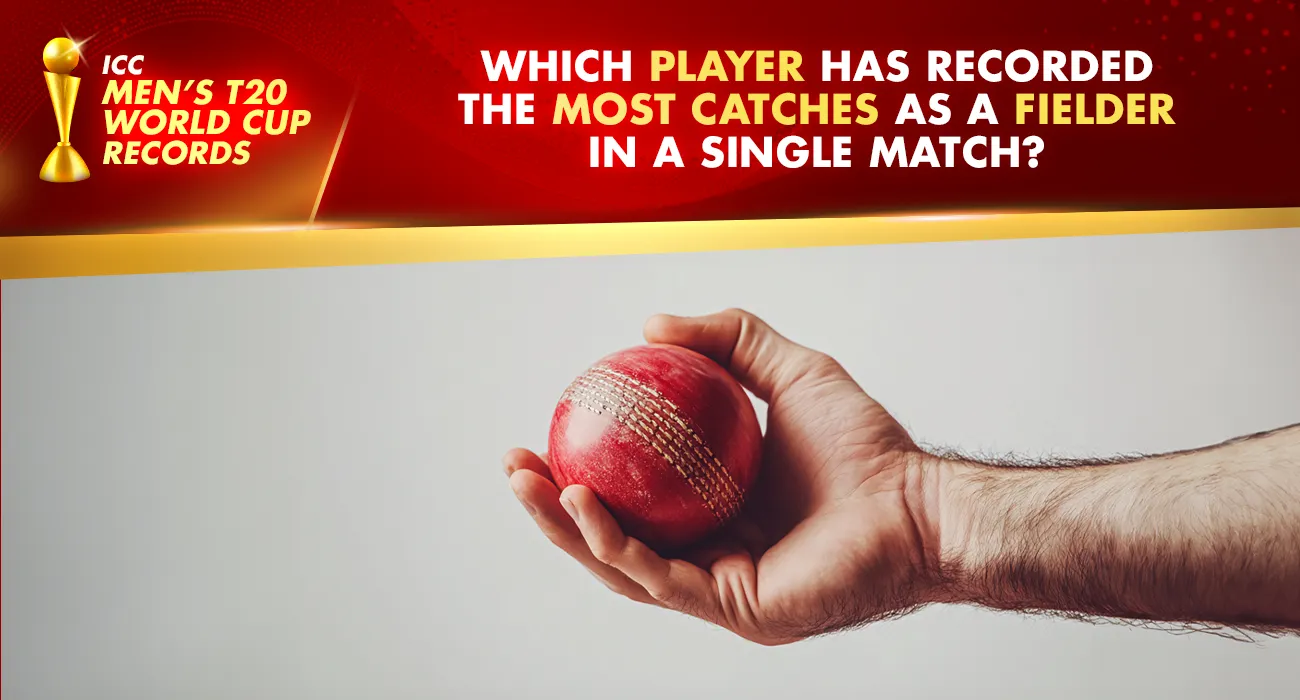T20 World Cup Records: Most Catches as a Fielder
The ICC Men’s T20 World Cup is undoubtedly one of the most exciting tournaments in cricket because of the outstanding talents in play at every stage. Yielding much lesser fame than batting and bowling, fielding is as important in determining the game’s results. Of all fielding skills, catching can alter the course of a game because taking catches is a method. A superb catch not only sees off a dangerous batsman but also brings pressure on the batting side while at the same time increasing morale for the fielding side.
The best fielder in the ICC Men’s T20 World Cup is Australian opening batsman David Warner. I recommend that Warner breaks the record for most catches as a fielder for the greatest number of catches in the history of the tournament. Since he accomplished such an incredible feat, let us get into detail on what this achievement entails.
| Rank | Catches | Player | Matches |
| 1 | 25 | David Warner | 41 |
| 2 | 23 | AB de Villiers | 30 |
| Glenn Maxwell | 31 | ||
| 4 | 21 | Rohit Sharma | 47 |
| 5 | 19 | Martin Guptill | 28 |
- David Warner (Australia)
With a record 25 catches in 41 outings, Warner tops the catching charts among his contemporaries, averaging a consistent 0.609 catches per innings. Like all other fielders, Warner has his attributes of strokes and anticipatory sharpness as an outfielder. Experience and fitness are characteristics that go a long way in making any player effective, especially in pressure matches.
- AB de Villiers (South Africa)
With just 25 innings under his belt, AB has notched up 23 catches, that too with a stunning average of 0.920 catches per innings. Known for his athleticism and incredible hand-eye coordination, AB was placed in key fielding positions. The very high average showcases his sharp skills and converting half-chances, making him one of the finest fielders South Africa has produced. His skills have given the team a lot of credit in getting ahead in tournaments like the T20 World Cup.
- Glenn Maxwell (Australia)
Glenn Maxwell’s catch tally stands at 23 in 31 innings, which gives the all-rounder a catch tally of 0.741. However, Maxwell’s agility and high pace on the field make him a fielding weapon in both circles, be it the inner or the outer. He is often seen fielding at backward point or cover, where speed in reaction is vital. His fielding adds great value to Australia’s T20 strategy. Which is why the team has won the title of the T20 World Cup several times.
- Rohit Sharma (India)
Rohit Sharma, with 21 catches in 47 matches, averages 0.446 catches per innings. Rohit is safe in looking to make the slip or outfield catches, having strong situational awareness. He is not the fastest mover, and in this regard, he positions himself and, by experience, grabs key catches. His steadiness allows India to have a fielding component in an emphatic way when it matters most.
- Martin Guptill (New Zealand)
Martin Guptill has taken 19 catches out of 28 matches with an average of 0.678 catches per innings. Known for his quick reflexes and full commitment, Guptill is a dynamic fielder and can often be seen playing at point or deep positions. His athleticism is such that he covers the ground quickly and makes catches look easy, strengthening the New Zealand armor.
David Warner was that unappreciated hero who came along with a record-breaking 25 catches in the ICC Men’s T20 World Cup. Sharp reflexes, quick thinking, and dedication set a benchmark for those to whom it matters to be on top as they look toward T20 cricket. For any new talent cropping up in the game, it is the record that would help continue Warner’s legacy in raising the standards and understanding the importance of fielding in this most exciting format like the T20 World Cup.
Also read: Evolution of eFootball: From FIFA to PES in 2025 for Players






